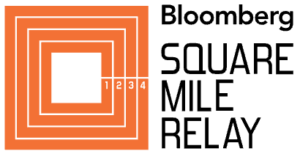This website uses cookies so that we can provide you with the best user experience possible. Cookie information is stored in your browser and performs functions such as recognising you when you return to our website and helping our team to understand which sections of the website you find most interesting and useful.
The age of the microbreak
25 March 2021 で 12:28PM
In the global pandemic era, we are spending more time than ever in front of our screens. We are working longer hours than before, experiencing significantly less in-person interaction with others, and reports of stress and burnout are on the rise.
We’re also less active, and with a reduction in daily exercise, movement, and fresh air – all good endorphin-inducing activities – we’re at serious risk of mental flatlining.
Preserving our mental health has never been more important, and with the digital workplace becoming the new normal for many companies – projected to continue into the post-pandemic era – we need to ensure that as individuals, we are taking the right steps to give our brains a break.
A recent research paper published in the Journal of Applied Psychology revealed that taking “microbreaks” throughout the day can help boost productivity and decrease fatigue. Researchers from the National University of Singapore, North Carolina State University and the University of Illinois at Urbana-Champaign, analysed survey results from 98 workers in the U.S. and 222 workers in South Korea. The study revealed that participants who took frequent microbreaks of five minutes were better engaged in their work and would feel less fatigued at the end of the working day.
“A five-minute break can be golden if you take it at the right time”, said co-author Sophia Cho. “Our study shows that it is in a company’s best interest to give employees autonomy in terms of taking microbreaks when they are needed – it helps employees effectively manage their energy and engage in their work throughout the day.”
The research, while not wholly surprising or indeed a revelation of breakthrough science, serves to underline the relevance of mental breaks in a world where we are spending more and more time in front of screens. The so-called ‘Zoom fatigue’ of the past 12 months has become something of a healthcare crisis in its own right, and mental breaks can be an effective antidote to this.
Nick Littlehales, the Sport Sleep Coach – an expert who works with elite athletes to optimise performance through sleep and recovery – is a proponent of what he calls periods of ‘microsleep’, especially effective for mental performance if you are suffering from poor sleep.
“Don’t think about napping, think about a vacant mind space. You’re not actually trying to sleep. If your brain wants to grab a microsleep it will,” Nick explains. “Don’t stay at your desk – go somewhere more private inside or outside, maybe go for a walk or sit on a bench, use familiar sensory tools such as sound or visual to make that moment happen for you. Don’t try to sleep during these periods – your brain will microsleep if it needs to, and the more you do it the more aware of it you will become.”
A microbreak of any kind acts as a mental reset; a chance for your brain to let go of the information that it is constantly being bombarded with, which in turn will release some feelings of ‘mental drag’ which can cause stress, a sense of being overwhelmed and fatigue. It also allows time away from your screen, which reduces eye strain and provides a break from mental processing.
A general recommendation to optimise your mental health and productivity is to take a microbreak of around five minutes roughly every 90 minutes – any longer than that and your brain starts to become less efficient at focusing on and processing information.
While employers should certainly be promoting ways to combat the risk of burnout among employees, it is also good for employees to practice healthy habits within their own working environment, even if it’s just five minutes of meditation a few times throughout the working day.
The Virtual Club is a platform which facilitates healthy high performance in the workplace with a wide range of physical and mental activities which help to earn employee points towards their organisation’s leaderboard position. Find out more.
Related Articles


